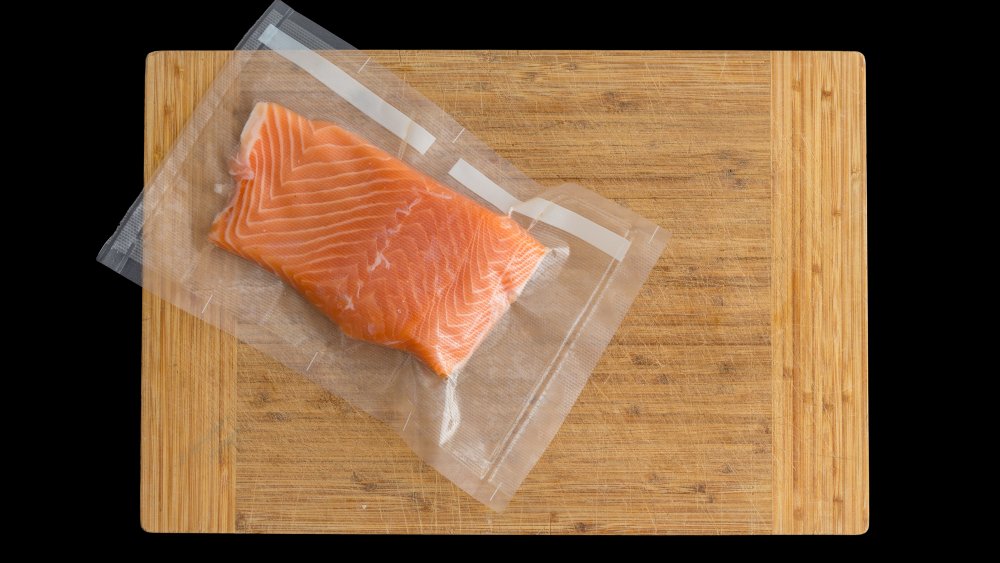The Real Reason You Should Never Defrost Vacuum-Sealed Fish
Wouldn't life be lovely if every time we got a craving for fresh fish we could just stroll down to the docks and toss a freshly-caught salmon into our chic little market basket? Ah, but we live in the real world, where it's paper or plastic all the time and our busy lives keep us so off-kilter we seldom know when we'll find the time to eat, much less cook, nor how many portions we'll need when we do get around to doing either. Luckily, modern food packaging technology has us covered, or rather, it's got our food covered so we can safely toss it in the freezer until the stars align and we find some time.
Nothing keeps the catch of the day as fresh as possible for as long as possible better than reduced-oxygen packaging (ROP), aka vacuum packaging. Unfortunately, there's a downside to packaging fish in this manner, since not only is the fish preserved, but so are some unwelcome little visitors called Clostridium botulinum. These bacteria, as the name might have tipped you off, produce a deadly toxin that can cause botulism — a type of food poisoning that, if untreated, has a whopping 50 percent mortality rate (via MedicineNet), which is right up there alongside that of some of the world's deadliest viruses. Even if treated, side effects including paralysis or shortness of breath can last for months or even years. Scary stuff! So what can we do to save ourselves from fish-borne botulism?
A simple, yet vital solution to prevent fish-thawing fatalities
In order to kill off the botulism-producing bacteria, it is super-important to remove the vacuum packaging before thawing your fish. Once that nasty old C. botulinum is exposed to oxygen, it will be incapable of producing deadly toxins. Since you're unwrapping your fish anyway, you could take the opportunity to marinate it or perhaps apply a dry rub, or you can thaw it in your refrigerator or in cold water. Another tip you might want to try is to cook your fish while it's still in its frozen state, a technique that also works for other types of meats. Whatever you do, though, be sure to follow all recommended food safety guidelines, since eating fish is supposed to be good for your health, and there's nothing healthy — or enjoyable — about food poisoning.

